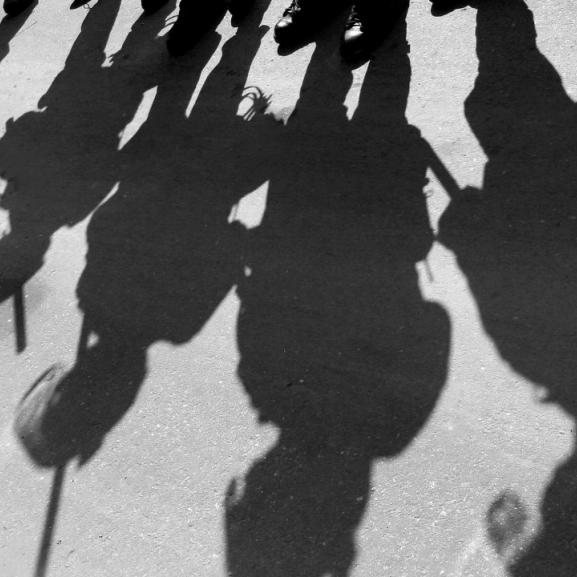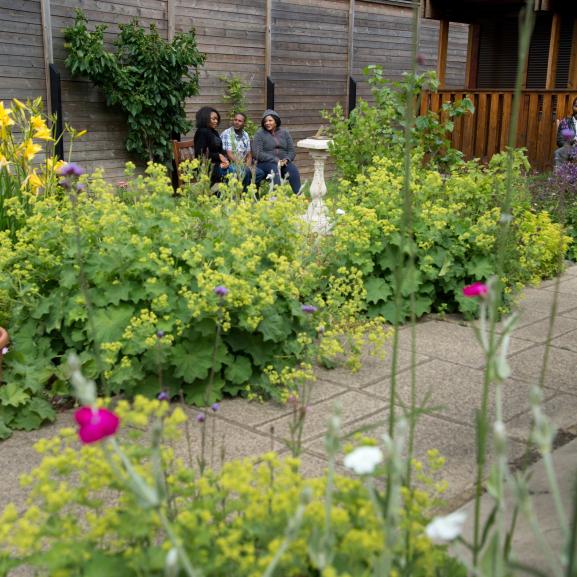UN Special Rapporteur for Torture visits Freedom from Torture Glasgow centre
UN Special Rapporteur for Torture, Professor Nils Melzer, visited Freedom from Torture’s Glasgow centre to talk about issues facing torture survivors with our staff and survivors themselves.
Blog by Ann Hannah, Acting Director of Policy and Advocacy
Disbelief, hostility, loneliness: all recurring themes in the conversations torture survivors had with Professor Melzer when he joined us at our Glasgow centre earlier this week. We were lucky enough to secure a few hours of the Special Rapporteur’s time to talk to our clinicians and to attend a roundtable discussion with ten survivors, facilitated by Survivors Speak OUT.
Last year Professor Melzer and a number of other UN experts expressed their concern at the “deterrence measures” being used by states to create unbearable conditions in an attempt to prevent migration.
Many of our clients have first-hand experience of the UK government’s “hostile environment” policies and were able to share this with Professor Melzer. They described the hostility and disbelief that they faced at every stage, not only of the asylum process but also in their day to day dealings with officials.
Many spoke about the emotional impact of being told that they are “illegal” even when in the official asylum system and their only “crime” is wishing to be free from torture or to protect their loved ones from being punished on their behalf.
More than one survivor expressed the urgent need for asylum seekers to be treated as equals, as human beings. They were shocked at the aggressive treatment they received at the hands of UK Home Office officials and the disregard for their dignity expressed by housing providers and others responsible for supporting asylum applicants.
More than one survivor expressed the urgent need for asylum seekers to be treated as equals, as human beings. They were shocked at the aggressive treatment they received at the hands of UK Home Office officials and the disregard for their dignity expressed by housing providers and others responsible for supporting asylum applicants. The survivors described having their torture questioned over and over again – even when they have medical evidence to support their case for suitable help or services.
One client described how, even with a leg so badly injured from torture that he may lose it, his asylum accommodation is on the 14th floor and his requests to move somewhere more accessible have not been met.
The survivors’ words affected the Special Rapporteur. At the end of the meeting, he noted that, on a personal level, their stories shocked him into silence but that his mandate is to speak out on behalf of people such as them. We were pleased that he committed to continuing to question states on their “deterrence measures”. He told the group that he was grateful for their willingness to speak to him, as recommendations from them could enable him to help others unable to speak out.
One of the simplest yet most urgent messages to come from the conversations was that of one survivor: "When we came here, we thought we would be respected as human beings and we’d be able to recover from our torture. Freedom from Torture gives us that respect. We just want that from the asylum system."
We know from our clients the devastating impact that the Home Office’s hostile environment policies already have on their day-to-day life and these policies keep being expanded, such as the recently announced bank account checks and health care charges. We look forward to working with the Special Rapporteur throughout this year, and we are already planning a follow-up meeting with the Glasgow clients to develop a number of specific recommendations following on from our discussion.
Perhaps one of the simplest yet most urgent messages to come from the conversations was that of one survivor: "When we came here, we thought we would be respected as human beings and we’d be able to recover from our torture. Freedom from Torture gives us that respect. We just want that from the asylum system."






